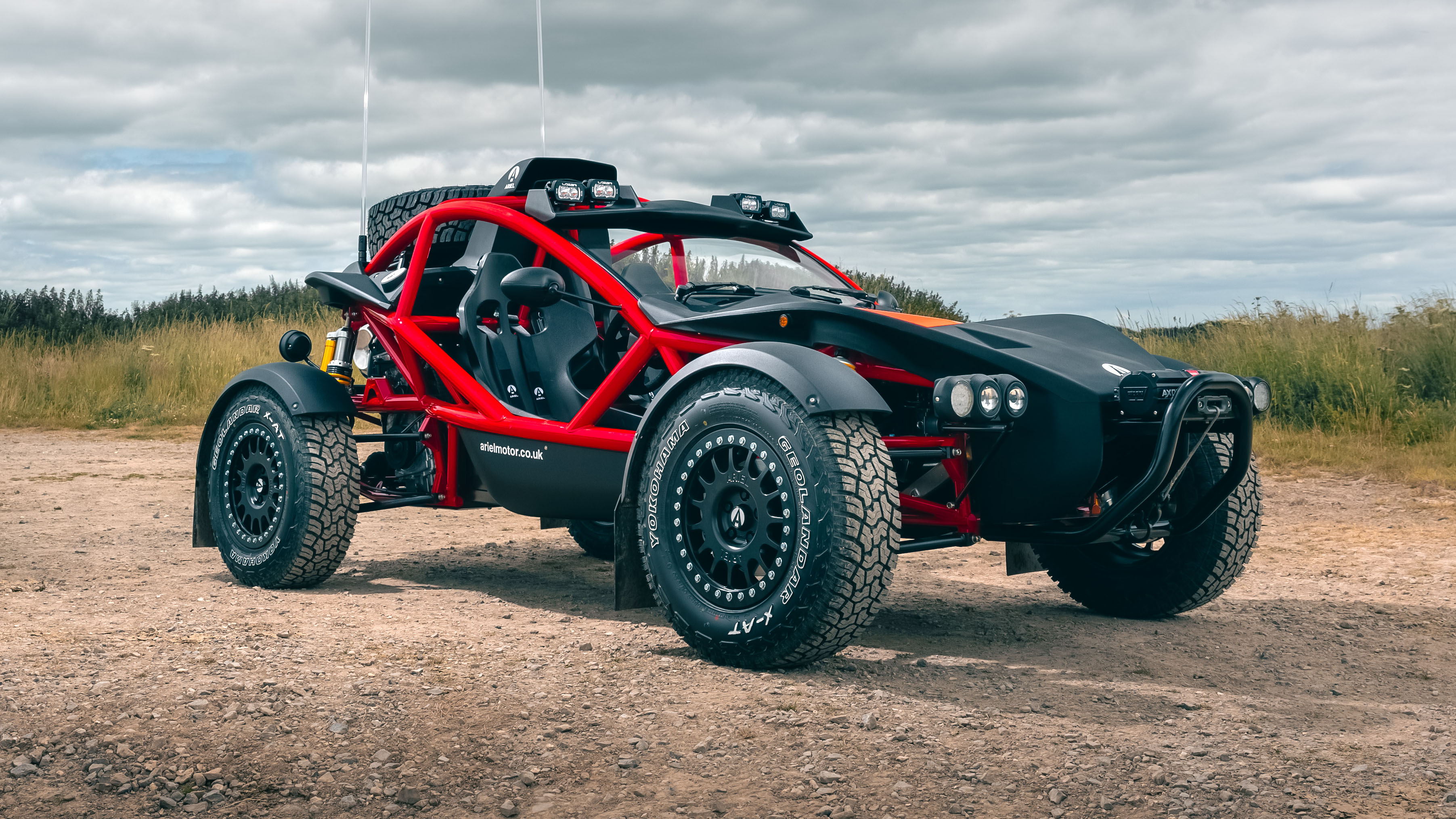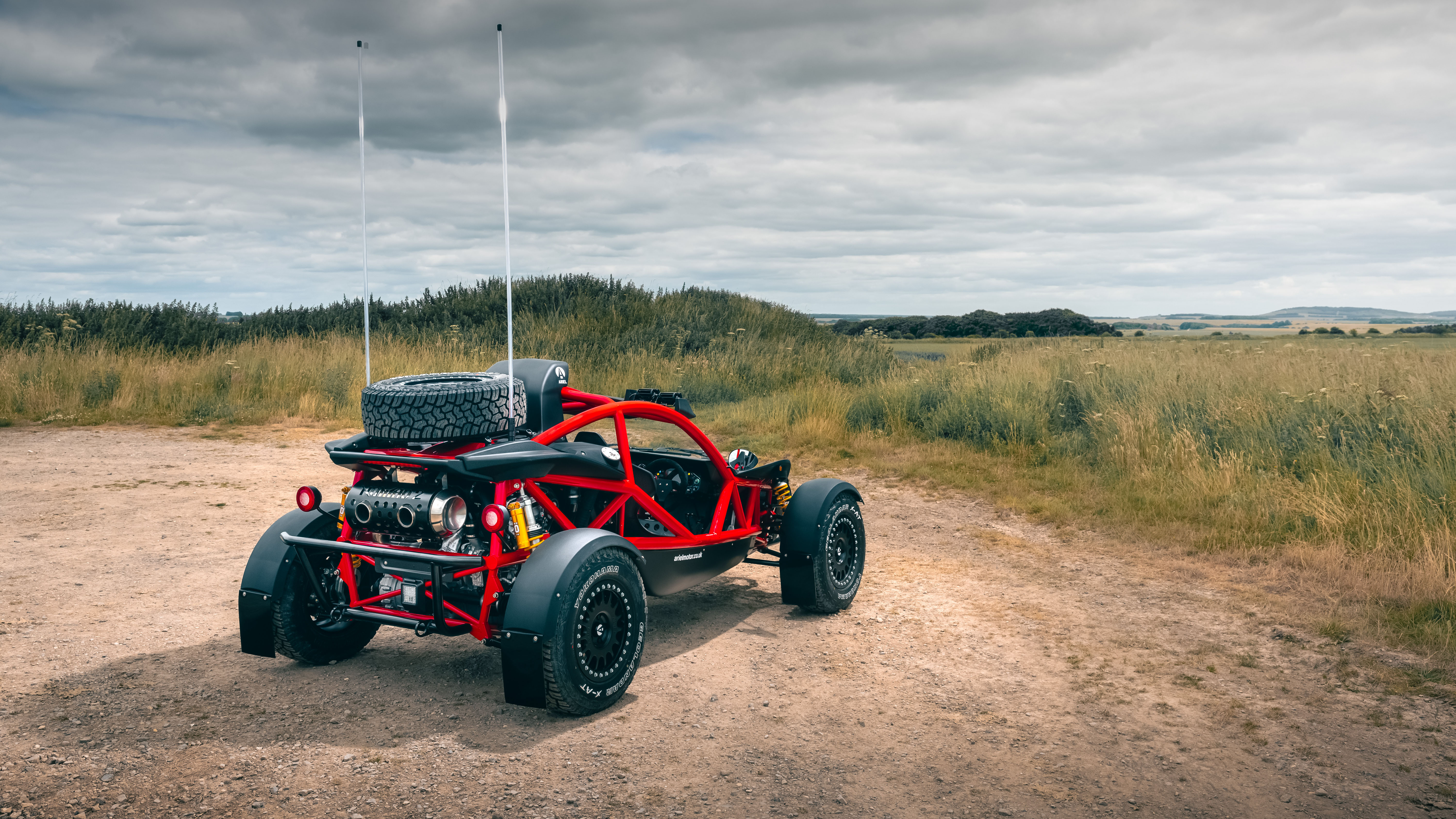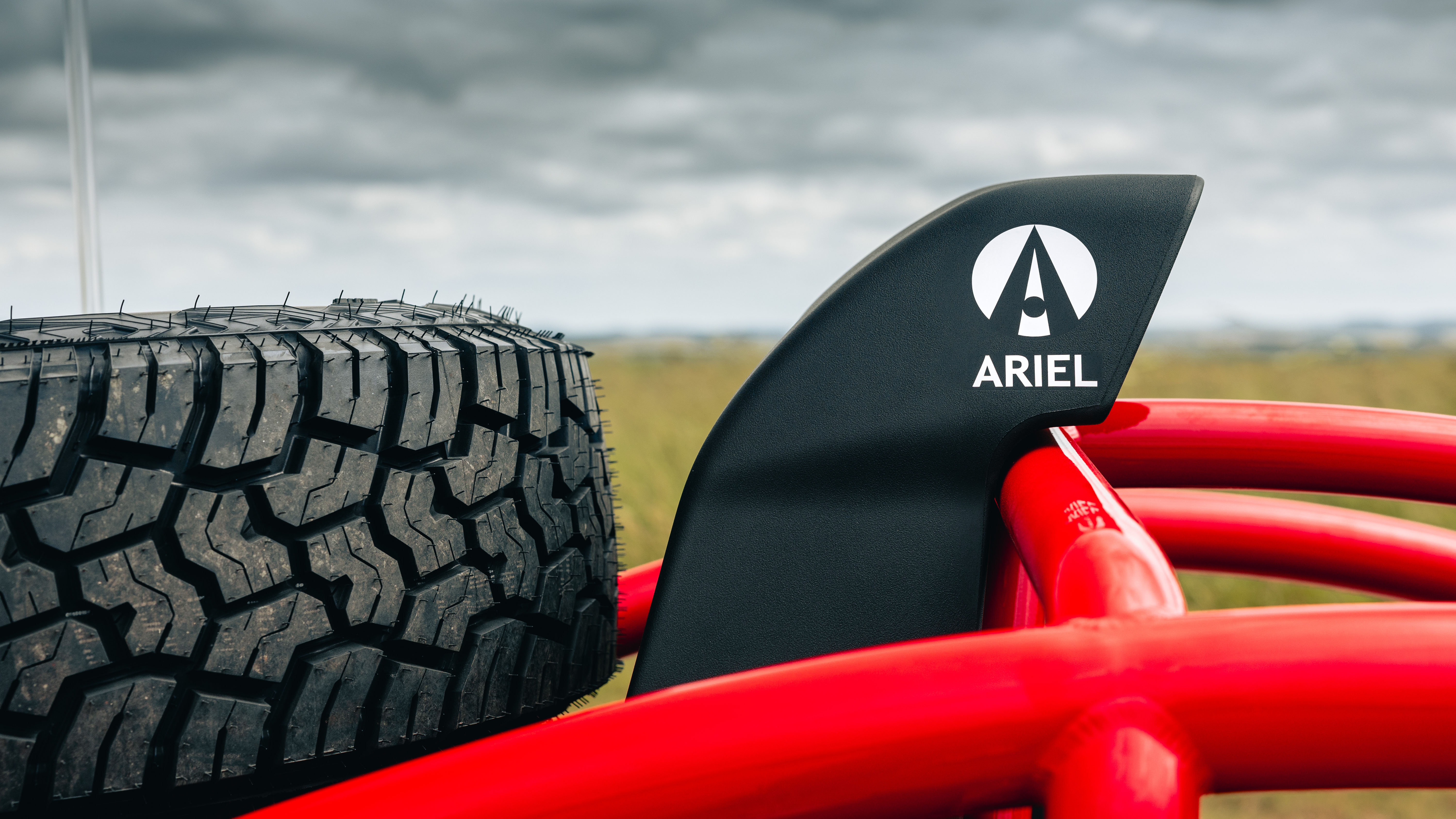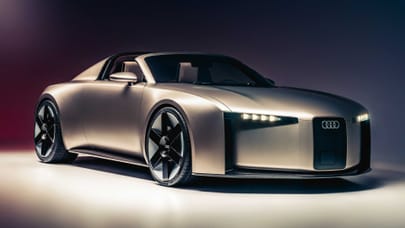
Welcome to the Ariel Nomad 2: a 305bhp car-shaped Border Collie
And in one of the biggest changes, Nomad 2 swaps the Civic Type R's four-pot for the 2.3-litre turbo from the Ford Focus ST
Clearly an Ariel Nomad, but clearly different. The furrowed brow, the broader bonnet, the beadlock wheels: say hello to Nomad 2. Same recipe as the original, but created from all new ingredients.
The only components carried over from the 2015 original are the steering wheel, pedal box and fuel cap. The chassis is now 65 per cent stiffer, the suspension has 50 per cent more travel. Aerodynamic elements have been integrated. And perhaps most surprisingly of all, this one isn’t powered by Honda.
Most importantly of all, it’s now easier to get in and out of. The old car necessitated a very specific technique, the new one’s larger aperture now gives you space to drag your trailing leg in after. That was something customers demanded, as was preventing spotlight glare down through the windscreen. The baseball cap visor stops penetration from the new (and fantastically powerful) Lazer LED lights, but it also serves another purpose.
Its wing profile, designed to channel air both above and beneath into the air intake behind the cockpit. That’s split into two elements. Air over the top goes into the larger intercooler intake, while the lower channel leads to engine intake. The air filters have been made much more accessible and have better filtering (Nomad owners do tend to get stuck in), but it’s the engine itself that’ll cause most surprise amongst Ariel fans.
After over 20 years of being powered by Honda motors, Nomad 2 doesn’t use the Civic Type R’s 2.0-litre turbo, but rather Ford’s 2.3-litre turbo as fitted to the Focus ST. In the standard version that will develop 260bhp and 270lb ft. An uprated version will have three separate maps, the top one delivering 305bhp and 380lb ft.
Since it still weighs around 850kg (depending on how much kit you fit), the top version has a power to weight ratio not far adrift of a 911 Turbo. Expect 0-62mph in not much over 3.0secs, 100mph in around 7.5.
The gearbox is the ST’s six speed manual, and as well as a conventional handbrake, you can have a rally-style hydraulic handbrake. You absolutely need that.
The chassis uses thicker tubes, and full CAD and CFD analysis has not only helped torsional rigidity, but like the Atom 4, has improved the suspension geometry. The idea is to rid the Nomad of some of the less controlled pitch, dive and wallow that afflicted the original. Various suspension choices will be available, with K-tec as standard, up to Ohlins (as fitted here).
Inside it’s more habitable. The dash (largely lifted from the Atom 4) is easier to use and more integrated, the buttons are better laid out and easier to hit and the whole electrics system has been overhauled, with a single PDM (power distribution module) meaning there are no separate fuses or relays. The windscreen is smaller, sits more upright and closer to you, and the wipers now work more conventionally.
Prices are going to increase by around 10 per cent, with a cost before options of around £60,000. Overall it promises to be more capable, friendlier to drive, but still a car-shaped Border Collie, never happier than when belting across a field, tail-like aerial waving frantically. We can’t wait to have a go. You?
Top Gear
Newsletter
Thank you for subscribing to our newsletter. Look out for your regular round-up of news, reviews and offers in your inbox.
Get all the latest news, reviews and exclusives, direct to your inbox.
Photography: Jonny Fleetwood
Trending this week
- Car Review
BMW iX3









